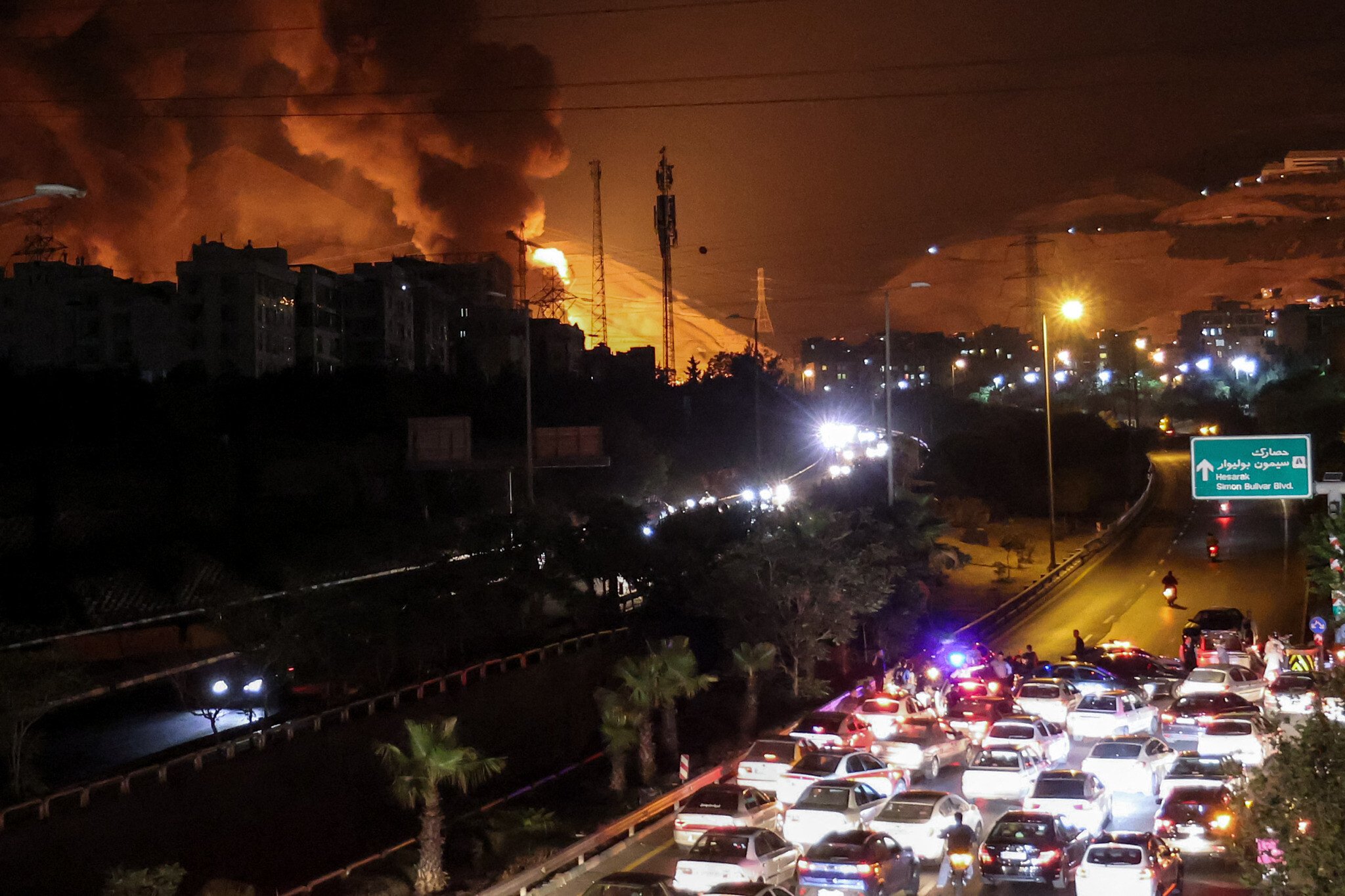Thousands of terrified residents are fleeing Iran’s capital as Israeli airstrikes intensify, targeting key military and infrastructure sites in what has quickly spiraled into a full-blown crisis.
According to reports, traffic chokes roads leading out of the sprawling city of over 10 million, while stores are being emptied of food, water, and medicine.
The panic is visible, and the fear is raw.
“We have nowhere to go,” said Shahriyar, 38, speaking by phone from central Tehran.
“How long should we stay away from our homes?”
Israel has issued public warnings to civilians to leave high-risk zones, fueling a sense of dread and sending families scrambling for safety.
Iranian officials slammed the messages as “psychological warfare,” but state TV has aired footage of the exodus—cars packed with mattresses, fuel cans, and crying children.
Many are seeking refuge in towns like Damavand, about 50 kilometers east of the capital.
“My parents are terrified,” said Arshia, a 29-year-old art teacher.
“There are no sirens. No shelters. Just explosions at night. Why are we paying for the regime’s foreign policy?”
The airstrikes, launched last Friday, are in retaliation for Iran’s aggressive posture in the region.
At least 224 Iranians have been killed, 90% of them civilians, an official said.
In Israel, 24 civilians have died in missile attacks by Iran.
Iran’s lack of public bomb shelters has drawn heavy criticism.
The government now says mosques, schools, and subways will remain open as makeshift shelters. But for many, it’s too little, too late.
“We hid under our dining table,” said Gholamreza Mohammadi, 48, a government worker.
“There’s no cash at ATMs. Food prices are going up. My kids cry themselves to sleep from fear.”
To add to the chaos, internet access has plunged by 50%, according to NetBlocks, an independent monitoring group. U
sers across Iran report digital blackouts since the strikes began.
Meanwhile, security forces have arrested dozens of people accused of “spying for Israel” or spreading anti-government narratives.
State media says any contact with Israel—even online—could result in detention.
With both nations locked in their fiercest confrontation yet, Tehran’s residents are left to fend for themselves—afraid, isolated, and increasingly angry.
Watch the video below.







